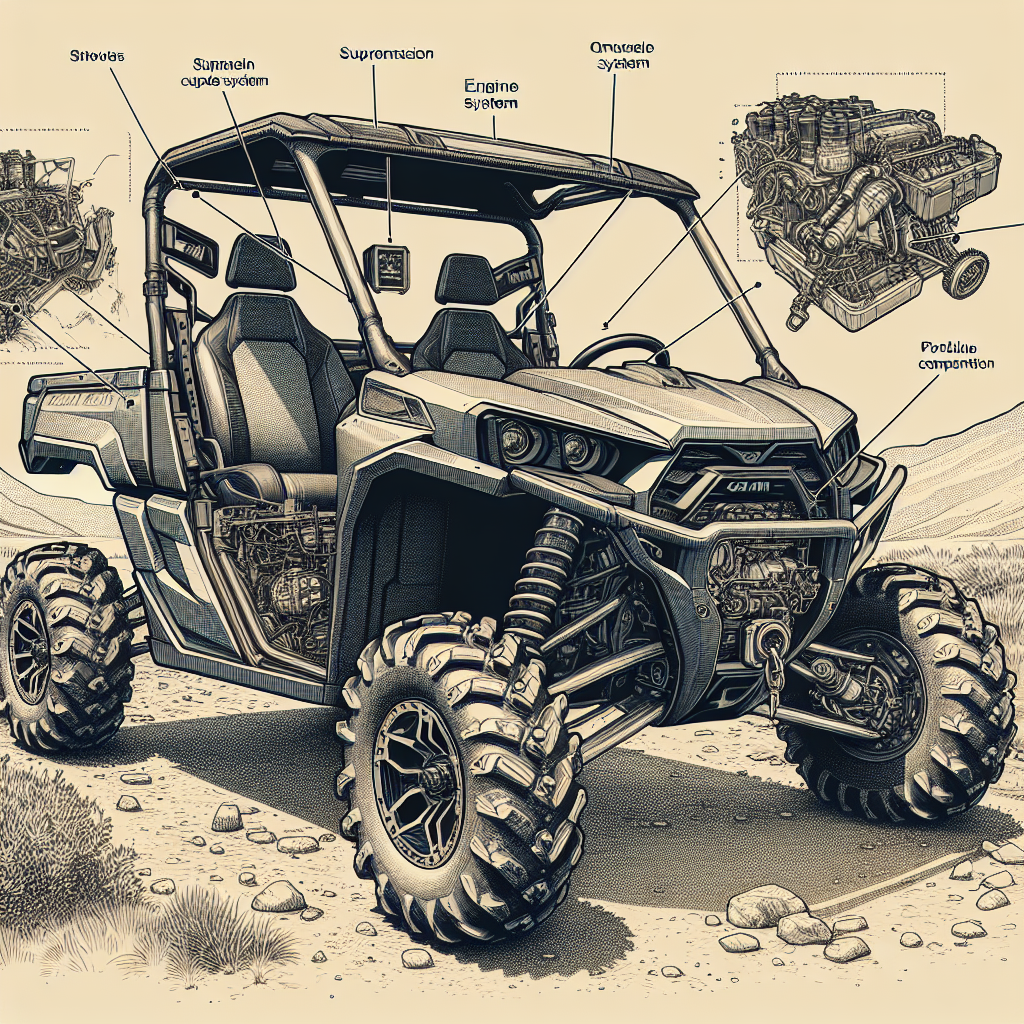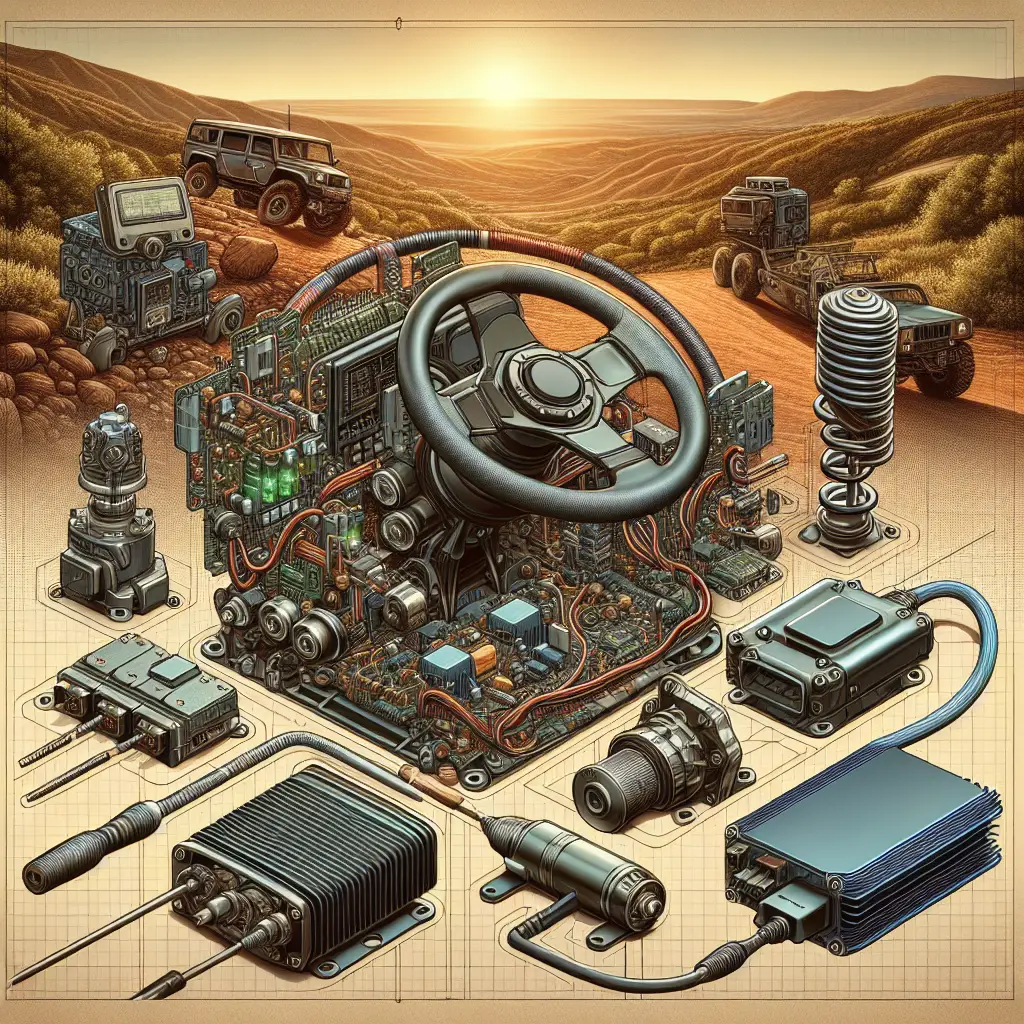The Honda Pioneer 700 stands as a reputable player in the side-by-side market, offering a blend of utility and leisure for adventurers and workers alike. Despite its robust design geared for both fun and functionality, owners have reported various issues that can tarnish the experience. Understanding these problems is crucial for prospective buyers and existing owners looking to maintain their vehicles optimally. It’s important to address common issues, such as starting difficulties, engine performance, and transmission glitches, and apply solutions that ensure the Pioneer 700 runs smoothly.
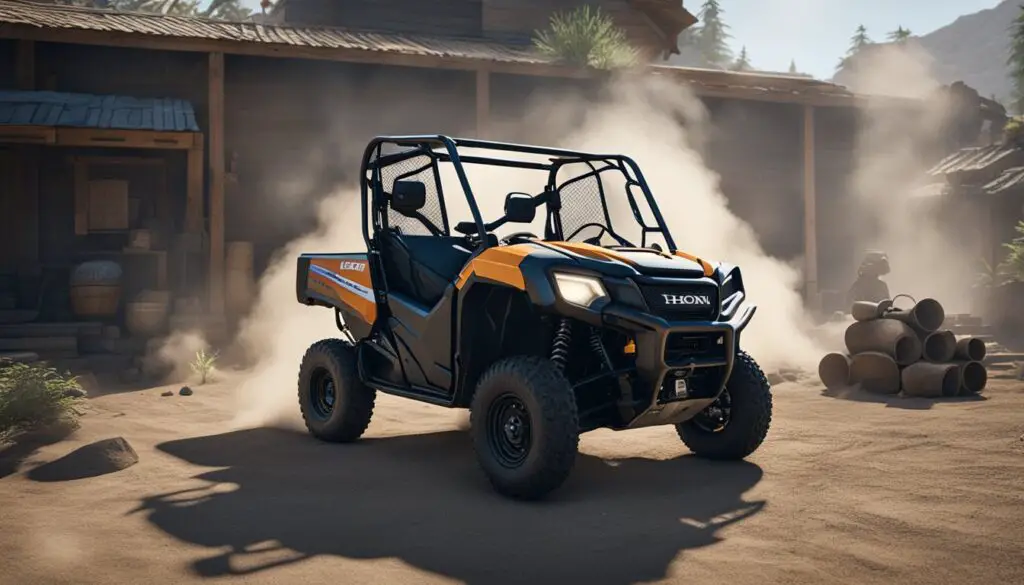
Maintaining the Honda Pioneer 700’s longevity hinges on adhering to recommended upkeep routines and recognizing the vehicle’s features and limitations. Owners benefit from learning about proactive maintenance tips, familiarizing themselves with the Pioneer 700’s functionalities, and obtaining reliable dealer support. Whether weighing the pros and cons of ownership or seeking answers to frequently asked questions, staying informed plays a significant role in the enjoyment and reliability of this off-road vehicle.
Key Takeaways
- Knowing common issues and solutions enhances your Honda Pioneer 700 experience.
- Regular maintenance promotes the longevity of your Pioneer 700.
- Understanding features and getting good dealer support is key to satisfactory ownership.
Common Honda Pioneer 700 Problems and Solutions
Your Honda Pioneer 700 is a reliable workhorse, but like any vehicle, it may experience issues over time. This guide will help you identify common problems and their solutions, ensuring your Pioneer stays in top shape.
Engine Issues
Common Problems:
- Engine misfires, often due to spark plug issues.
- Overheating caused by high oil temperature.
Solutions:
- Replace faulty spark plugs.
- Check and maintain proper oil levels; consider an oil cooler upgrade if overheating persists.
Transmission Difficulties
Common Problems:
- Difficulty or restricted shifting linked to shift fork or worn clutch plates.
- Transmission oil may require changing.
Solutions:
- Inspect the shift fork and replace it if necessary.
- Change transmission oil as per maintenance schedule.
Electrical Challenges
Common Problems:
- Electrical problems can result from weak battery connections or faulty starter solenoid.
Solutions:
- Tighten or clean battery connections.
- Test and replace starter solenoid if needed.
Cold Weather Complications
Common Problems:
- Starting problems in low temperatures.
Solutions:
- Use a battery warmer.
- Switch to an oil with lower viscosity suited for cold weather.
Drivetrain and Differential Concerns
Common Problems:
- Power loss or differential lock not engaging properly.
Solutions:
- Check differential oil and replace if dirty.
- Inspect front-drive axle and replace parts as needed.
Exhaust and Emission Anomalies
Common Problems:
- Sooty exhaust and pinging sounds from the exhaust system.
Solutions:
- Clean or replace dirty air filters.
- Check the exhaust system for blockages or damage.
Steering and Control Limitations
Common Problems:
- Power steering failures or control issues.
Solutions:
- Check electric power steering connections.
- If the problem persists, consult with a dealer for possible repairs.
Maintenance Tips for Longevity
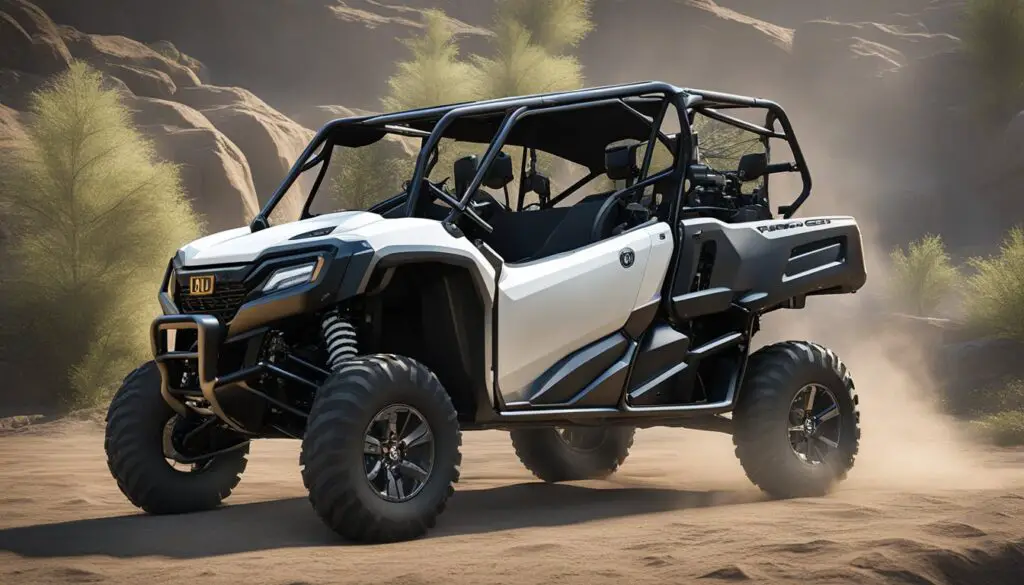
Keeping your Honda Pioneer 700 in excellent condition is crucial for its longevity. Regular checks and proper care of your vehicle can help maintain reliability and performance, while addressing wear and tear issues timely can save you from costly repairs.
Regular Maintenance Practices
To ensure reliability, regular maintenance is essential. Check your oil level routinely and use the recommended Pro Honda GN4 4-stroke Oil SAE 10W-30 for optimal engine health. It’s important to regularly inspect your air cleaner and replace it according to the owner’s manual schedule, as a clean air filter is vital for engine performance.
- Oil Change: Every 100 hours or 600 miles, whichever comes first.
- Air Cleaner: Inspect every 100 hours/miles and replace as needed.
Troubleshooting Components
When diagnosing issues with your Pioneer 700, start by checking for common problems like the fuel filter and front differential. A clogged fuel filter can affect fuel consumption and power, whereas a poorly maintained differential can compromise traction.
- Fuel Filter: Check during each maintenance interval.
- Front Differential: Inspect at least once a year or after extensive use.
Optimizing Performance
For improved performance, keep an eye on the vehicle’s semi-dry-sump design which requires less oil and maintains it at a cooler temperature. Also, ensure you’re using the right type of fuel as recommended by Honda.
- Fuel Type: Use the grade specified in your owner’s manual to optimize performance.
Addressing Wear and Tear
Wear and tear is natural but address it promptly to prevent further damage. Regular checks of the brake pads, skid plate, and suspension components will help curb degradation. It’s wise to schedule appointments with your dealer or a trusted mechanic for components that are beyond basic maintenance.
- Brake Pads: Inspect every 200 hours or as you notice performance changes.
- Skid Plate: Check for damage after off-road excursions.
Frequent checks and maintenance will not only ensure your Honda Pioneer 700 runs smoothly but will also extend its lifetime.
Understanding Honda Pioneer 700 Features
When you’re considering a utility task vehicle (UTV) like the Honda Pioneer 700, it’s essential to understand its features. This section will give you an insight into its design, comfort options, versatility, transmission system, and the innovative features that make the Pioneer 700 a reliable choice for both work and play.
A Glimpse of Pioneer 700 Design
Your Honda Pioneer 700 s tands out with a robust and utilitarian design tailored for practicality and durability. Built to handle tough conditions, it’s a side-by-side vehicle that combines quality materials with a layout suited for both farm work and off-roading adventures.
Deluxe Trims and Comfort
Opt for the Deluxe trims if you’re after enhanced comfort and aesthetics. These offer you a range of upgrades including comfortable seating, a more stylish finish, and additional features that contribute to a comfortable ride, making it a premium choice in the world of UTVs.
Versatility and Usage
Pure versatility makes the Pioneer 700 a standout option. Whether you’re navigating through your farm or exploring trails, its abilities as a side-by-side UTV make it an incredibly versatile choice for various tasks and environments.
Transmission and Handling
Enjoy smooth handling with the Pioneer 700’s transmission system. It includes paddle shifters and a continuously variable transmission (CVT) which is engineered to deliver reliable and responsive power transfer, enhancing your control and overall driving experience.
Innovations in Power and Drivetrain
The Pioneer 700 showcases innovations in its power and drivetrain. Its engine is designed to offer a blend of efficiency and power, while the differential lock feature provides superior traction, essential for challenging terrains that demand a reliable UTV.
Pros and Cons of Ownership
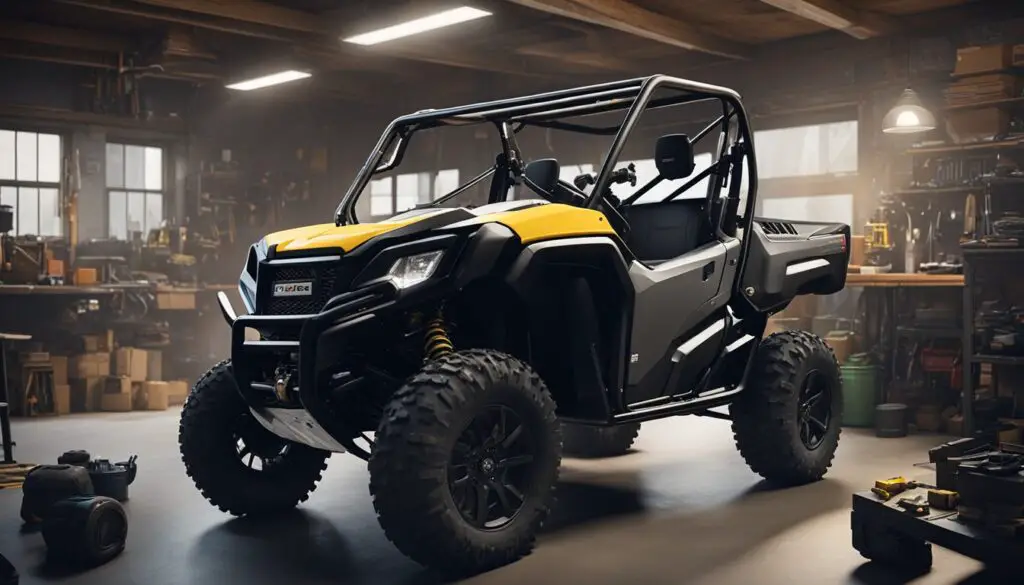
When considering the Honda Pioneer 700, it’s essential to weigh its reliable performance and comfort against the challenges you might face in maintenance and common issues.
Advantages of the Honda Pioneer 700
- Reliable Performance: Your Honda Pioneer 700 is known for its stable handling and strong durability. It’s built to tackle a variety of terrains, making it a versatile option for both work and recreation.
- Comfort: Enjoy a comfortable ride with features like a well-designed cabin and available power steering that enhance maneuverability and reduce fatigue during extended use.
Challenges Faced by Owners
- Common Problems: Although durable, you may encounter some Honda Pioneer 700 problems such as performance issues, including starting difficulties and occasional power loss.
- Noises: Be aware of potential rattling and squeaking noises which could suggest the need for maintenance or point to quality concerns that may need addressing.
- Cost and Dealer Service: Maintenance or unexpected repairs can be a concern with costs potentially adding up. However, services from a dealer can ensure that your Pioneer 700 is cared for properly.
- Maintenance: Keeping your machine in top condition might mean regular checks to avoid issues like erratic oil readings and engine seizing, which are known to affect this model.
- Heat and Overheating: Some owners report excessive heat in the cab or engine overheating. This can often be rectified with proper care and checks by a qualified technician.
Remember, despite some of the known challenges, many owners find their Honda Pioneer 700 to be a highly reliable and capable vehicle for a variety of uses. Your own experience will ultimately depend on how you use and maintain your vehicle.
Upkeep and Dealer Support
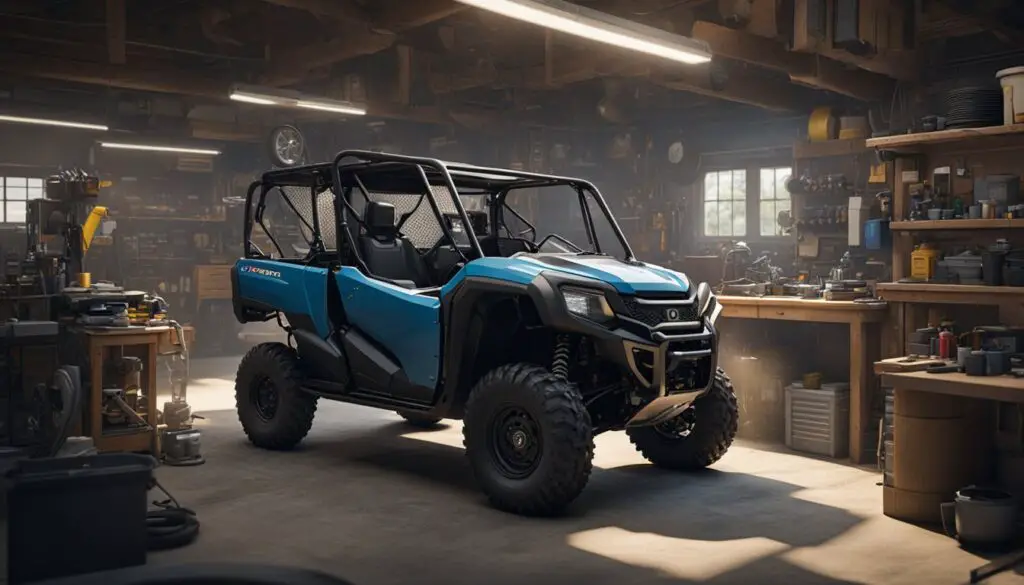
Your Honda Pioneer 700 is a reliable utility task vehicle (UTV), but like any vehicle, it requires regular maintenance to keep it running smoothly. Dealer support is vital for warranty issues and complex repairs, while routine DIY care can prevent many common problems.
Authorized Dealer Assistance
When your Honda Pioneer 700 faces a problem beyond simple maintenance, seeking authorized dealer assistance is a prudent step. Dealers are equipped to handle comprehensive repairs that fall under your warranty, and mechanics at these facilities are trained specifically to work on your UTV model. They can handle tasks ranging from fuel pump replacements to electrical issues, ensuring your vehicle is in top condition.
DIY Maintenance Guidance
Engaging in DIY maintenance can greatly enhance the longevity of your vehicle. Consult your owner’s manual for guidance on necessary routine checks and simple repairs. Here is a quick list of DIY regular maintenance tasks you should perform:
- Check and maintain oil levels
- Replace spark plugs as required
- Inspect and replace air filters to ensure engine breathability
- Examine the fuel filters to avoid clogging
Wearing Part Replacements
Certain parts of your Honda Pioneer 700 will wear out over time and require replacements. Keeping an eye on these components, such as shocks, bushings, and tires, can prevent more substantial issues down the line. Always consider using original equipment manufacturer (OEM) parts for replacements to ensure compatibility and reliability.
Routine Check-Ups and Service
Mark your calendar for regular service check-ups at your local dealer or trusted mechanic. These check-ups should include:
- Oil and oil filter changes
- Inspecting the fuel tank and fuel pump for any damage or wear
- Brake inspections and adjustments
- Belt inspections and replacements if necessary
Staying on top of these maintenance tasks will help you avoid many common problems associated with the Honda Pioneer 700 and ensure your UTV remains a dependable workhorse.
Frequently Asked Questions
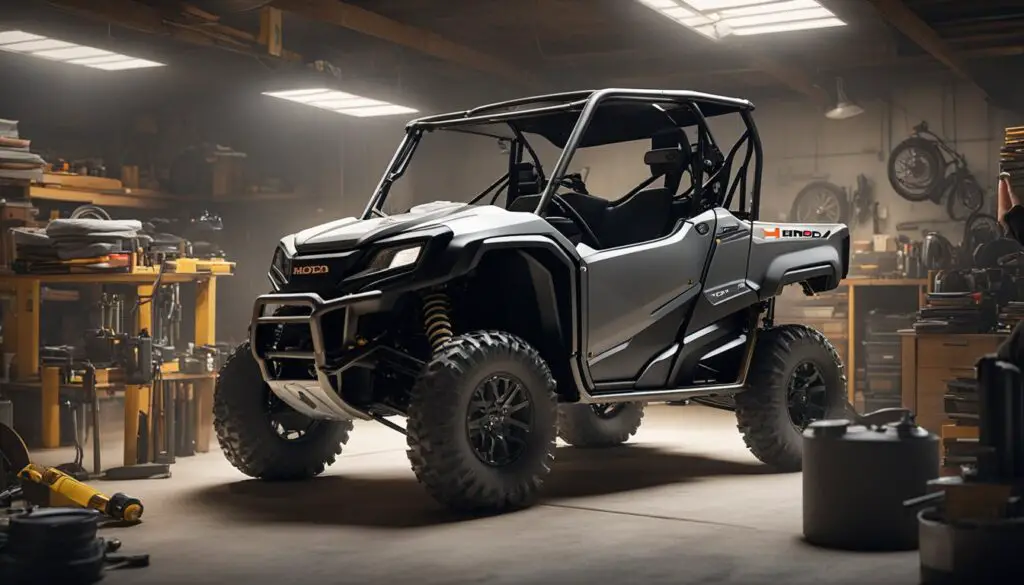
When it comes to the Honda Pioneer 700, you might have specific questions about common issues and maintenance. This section aims to address those pressing concerns, ensuring you have a smoother experience with your vehicle.
What are common transmission issues in the Honda Pioneer 700?
Transmission glitches in your Honda Pioneer 700 can include difficulty shifting gears and unexpected loss of power. These can be indicators of internal engine problems or may stem from the vehicle’s differential lock.
How does one upgrade the Honda Pioneer 700 transmission?
Upgrading the transmission usually involves installing a heavier-duty clutch kit or updating the transmission software if available. Contacting a professional or a certified Honda service center is recommended for precise guidance.
Are there known problems with the 2018 Honda Pioneer 700 that I should be aware of?
The 2018 Honda Pioneer 700 may experience issues such as overheating, power steering failure, or excessive cabin heat. Proper maintenance and timely checks can help mitigate these issues.
What are the steps involved in rebuilding a Honda Pioneer 700 transmission?
Rebuilding the transmission typically involves disassembly, cleaning, inspection of all parts, replacing worn components, and reassembly. It’s advisable to consult the service manual and consider seeking professional assistance for this complex task.
Has the 2016 Honda Pioneer 700 had any recurring problems reported by owners?
Owners of the 2016 Honda Pioneer 700 have reported problems such as erratic engine behavior possibly due to faulty sensors, and issues with squeaking and rattling noises that could suggest wear in certain components.
What typical problems have been reported with the 2013 Honda Pioneer 700?
For the 2013 model, you might encounter problems related to clutch slippage and shifting. These issues can affect the vehicle’s power delivery and control on varied terrains. Regular inspection and maintenance are essential to prevent such problems.

